Publications
Explore our publications by our team of experts within the DDP network. Our publications advance knowledge and contribute to deep decarbonization from the perspectives of our in-country experts.
- DDP-Initiative
- Report
- 2023
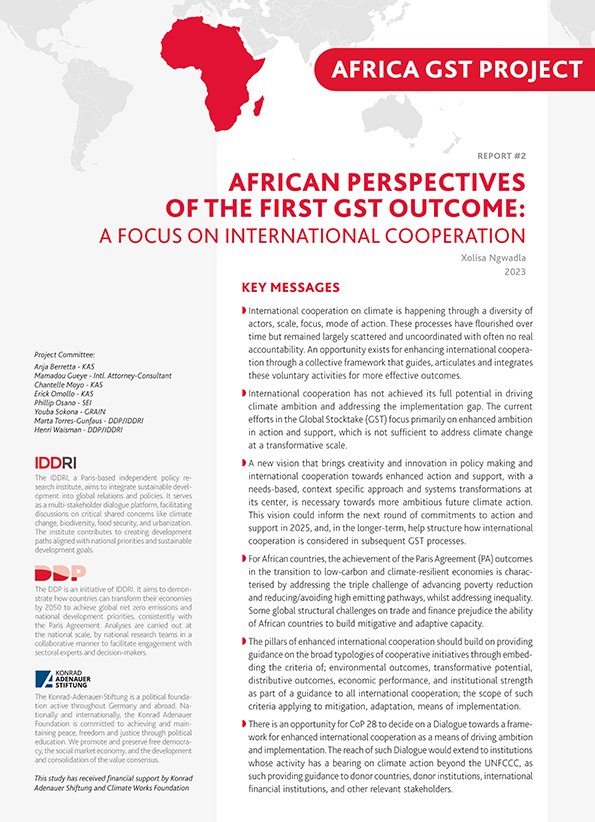
- Africa
GST Africa Report #2 – African Perspectives of the First GST Outcome: a Focus on International Cooperation
The diversity of global climate initiatives lack coordination, requiring a collective framework for effective integration of actions. Current efforts inadequately drive climate ambition, necessitating a new vision emphasizing creativity, context-specific strategies, and systemic transformations. African nations encounter obstacles meeting Paris Agreement targets. This report urges for enhanced cooperation focusing on environmental, transformative, and distributive outcomes — an effort that COP28 could guide for improved international cooperation beyond UNFCCC.
- Xolisa Ngwadla
- DDP-Initiative
- Report
- 2023
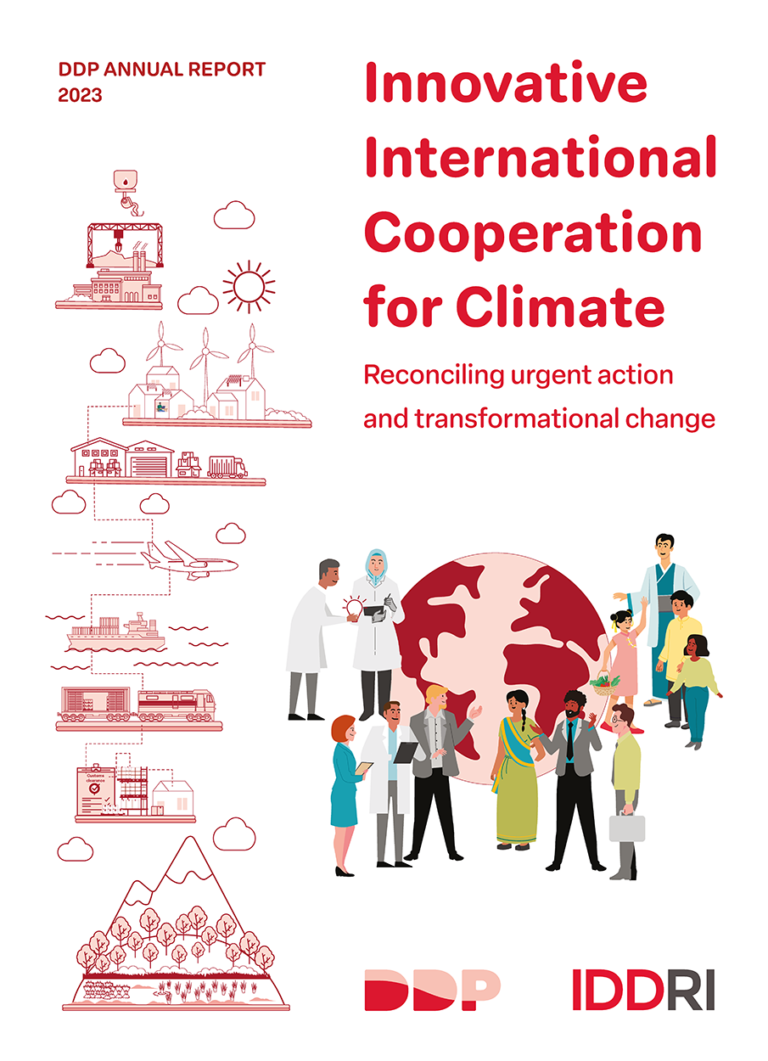
- Brazil, Colombia, France, India, Indonesia, Nigeria, Senegal, South Africa
DDP Annual Report 2023 – Innovative International Cooperation for Climate – Reconciling urgent action and transformational change
The report emphasizes the urgent need for swift and transformative action on climate change in line with the Paris Agreement’s temperature goals. Incremental changes won’t suffice; instead, a systemic transformation involving both technological and organizational shifts across all sectors and countries is essential.
Download the report:
Chapters- DDP
- DDP-Initiative
- Report
- 2023
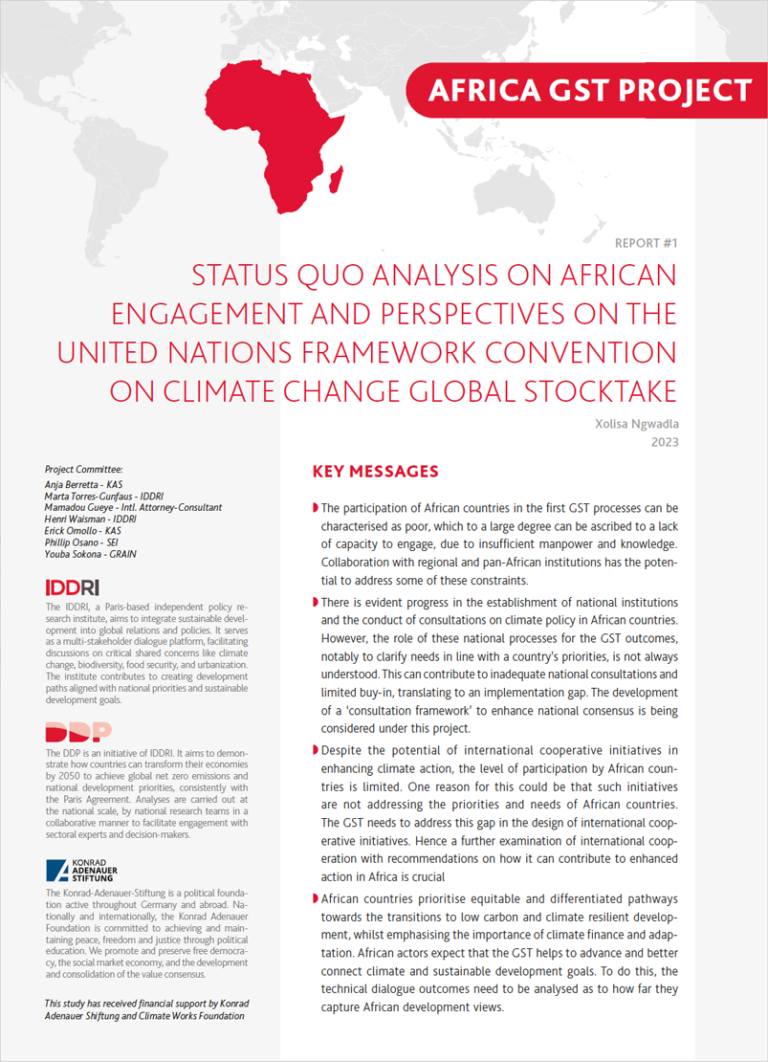
- Africa
GST Africa Report – Status Quo Analysis on African engagement and perspectives on the United Nations Framework Convention on Climate Change Global Stocktake
African countries have so far had a poor engagement in the Global Stocktake (GST) process due to a number of factors. This report tries to understand why that is the case and how we could improve on increasing their engagement.
- Xolisa Ngwadla
- DDP-initiative
- Report
- 2022
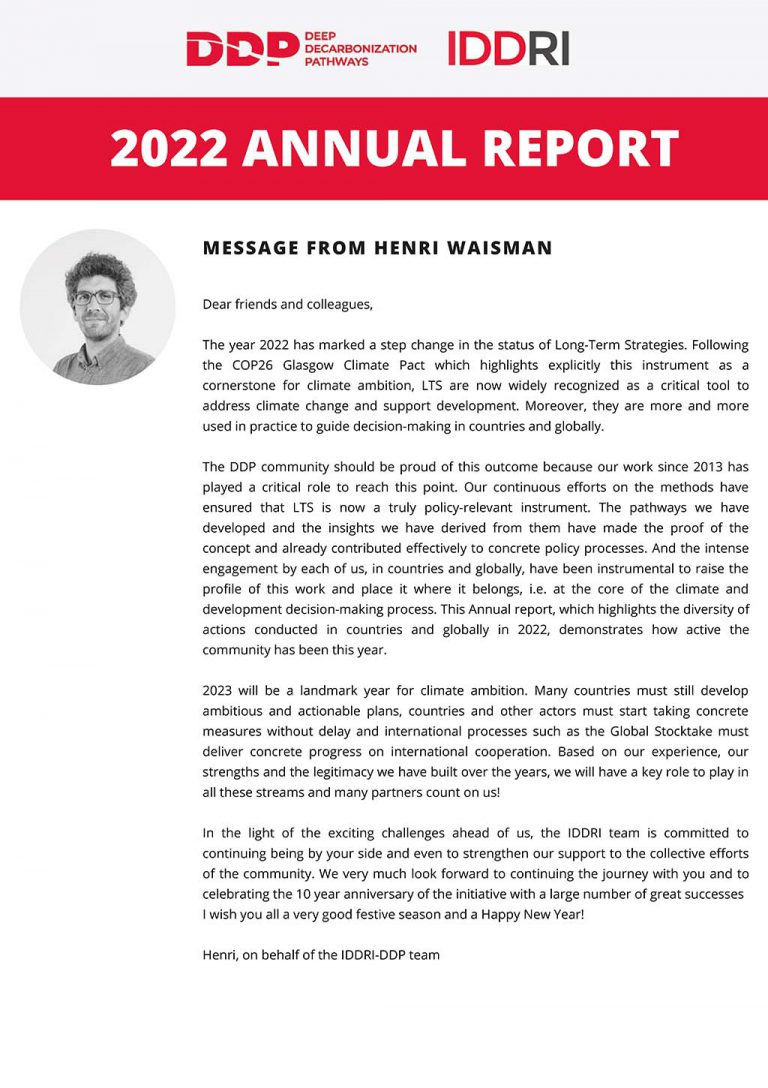
- Brazil, India, Indonesia, Mexico, Nigeria, Senegal, South Africa
DDP Annual report 2022
This report summarizes the activities, publications, and other engagements of the DDP in 2022.
- Henri Waisman
- DDP-ACT
- Note
- 2022
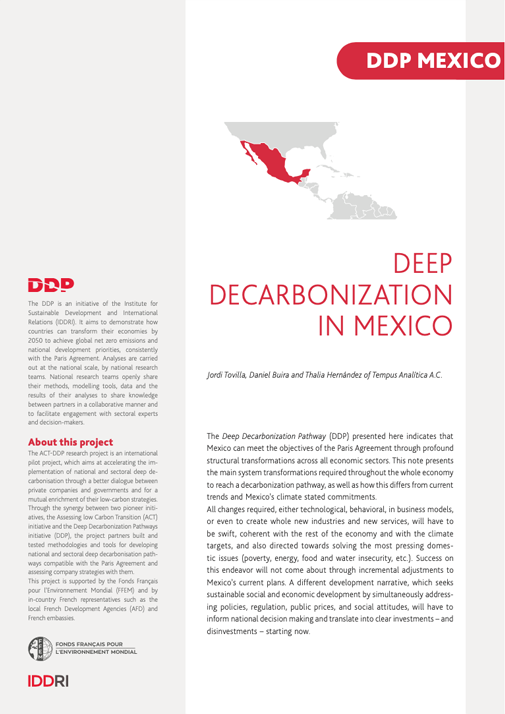
- Mexico
ACTDDP Mexico scenarios notes
These notes present the main system transformations required to reach a decarbonization pathway, as well as how this differs from current trends and Mexico’s climate stated commitments.
Sectors
- Mexico DDP team
- DDP-ACT
- Note
- 2022
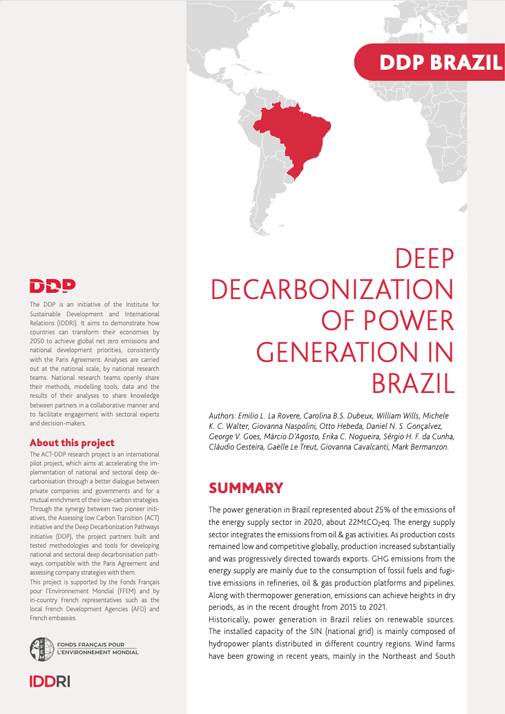
- Brazil
ACTDDP – Brazil national deep decarbonization sectorial notes
These notes present the main system transformations required to reach a decarbonization pathway, as well as how this differs from current trends and Brazil’s climate stated commitments.
Sectors
- Brazil DDP team
- DDP-BIICS
- Report
- 2021
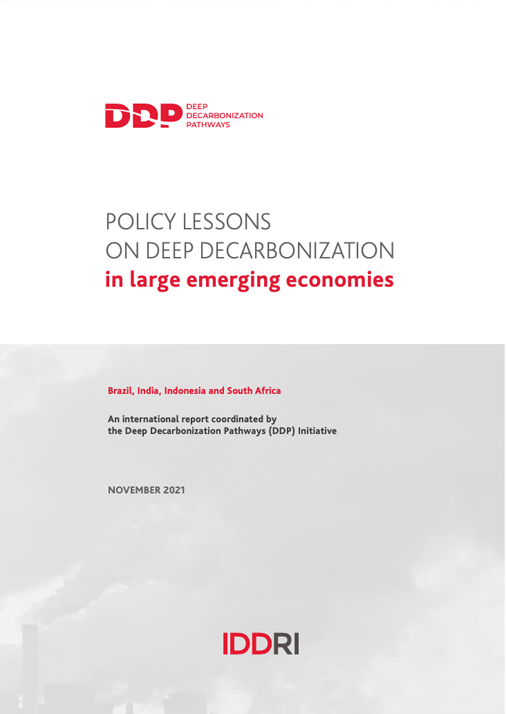
- Cross country
DDP BIICS Country Report – POLICY LESSONS ON DEEP DECARBONIZATION in large emerging economies
This report presents the main policy lessons emerging from the national Deep Decarbonization Scenarios developed in Brazil, India, Indonesia and South Africa. It includes a description of scenario’s main features, main synergies and trade-offs with country non-climate objectives, priority short-term policies and actions and key international enablers and accelerators of domestic transitions.
Country chapters
- DDP country teams
- DDP-BIICS
- Note
- 2021
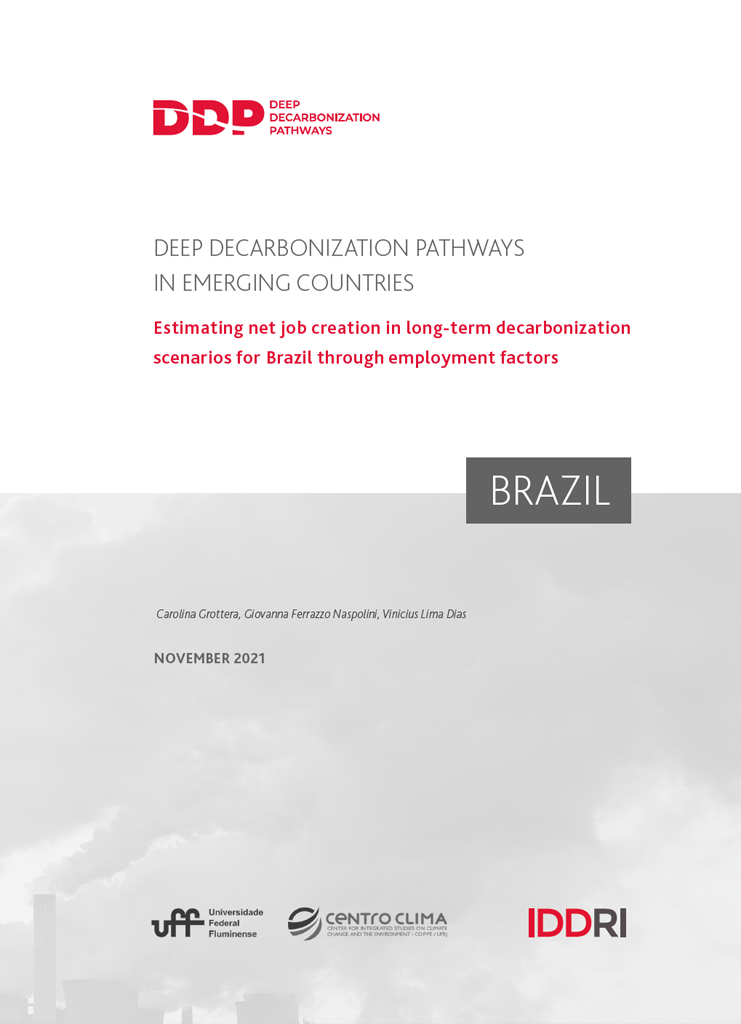
- Brazil
DDP Brazil – Estimating net job creation in DDP scenarios for Brazil
Estimating net job creation in long-term decarbonization scenarios for brazil through employment factors.
- Carolina Grottera, Giovanna Ferrazzo Naspolini, Vinicius Lima Dias
- DDP-BIICS
- Report
- 2021
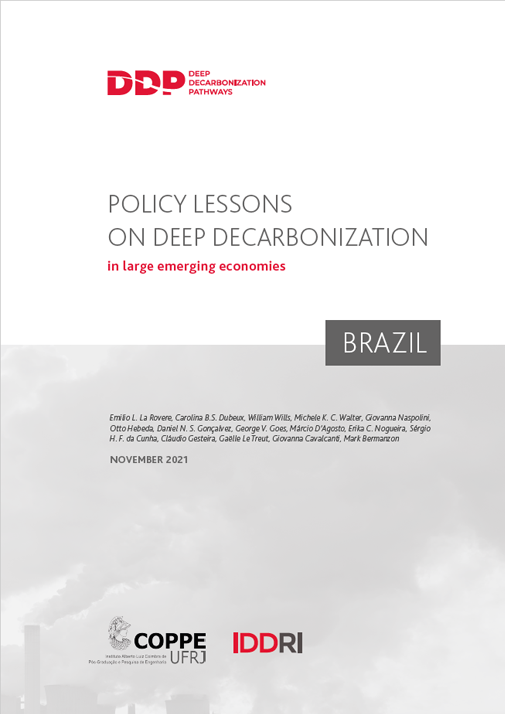
- Brazil
DDP Country Report – Policy Lessons on Deep Decarbonization in Brazil
This report presents the main policy lessons emerging from the national Deep Decarbonization Scenarios developed in Brazil. It includes a description of scenario’s main features, main synergies and trade-offs with country non-climate objectives, priority short-term policies and actions and key international enablers and accelerators of domestic transitions.
- An international report coordinated by the Deep Decarbonization Pathways (DDP) Initiative